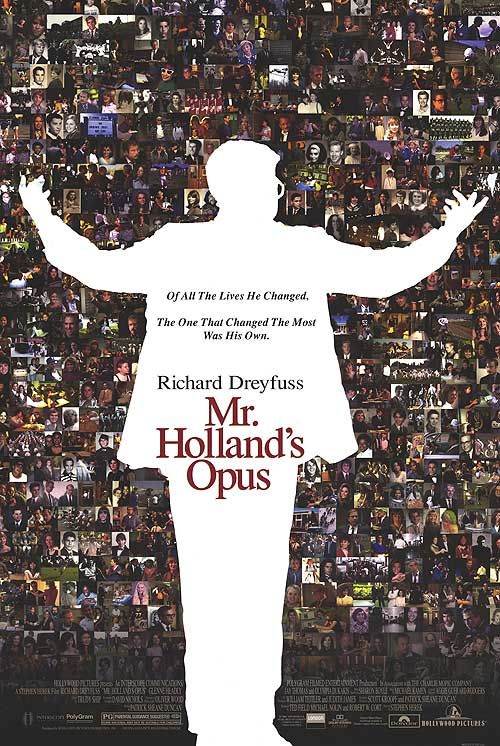You Are NOT Generation Z
By Patrick L. Sajak Host, Wheel of Fortune
The following excerpt is adapted from an address to the first graduating class of Founders Classical Academy in Leander, Texas, on May 27, 2017. Founders Classical Academy is one of 16 classical K-12 charter schools currently operating under the auspices of Hillsdale College’s Barney Charter School Initiative.
When you’re asked to give a commencement address, the first thing you think about is, what can you possibly tell these young men and women that they don’t already know? Especially here at Founders Classical Academy, where simply because these students chose to be educated in this particular way, I already know a great deal about them.
I have a sense of their ambition and of their standards. I have a pretty good idea of where their moral compass points. And, I know they’re not afraid of challenges. I know they have people in their lives who care deeply about them. And, I know that their futures will be filled with accomplishments and good works.
In short, I’m not sure there’s much need to try to inspire a group like this. So, let me instead suggest a pitfall to avoid going forward, a pitfall not only for this year’s graduates, but for everyone in every corner of American society today.
It has altered the way we talk to one another and perceive one another. It has perverted the notion of free speech and poisoned the academic environment. It has turned the American political system on its head, creating a situation where opposing views are not only unwelcome, they are deemed to be signs of evil intent. It has pitted friend against friend and has caused rifts within families.
I’m talking about identity politics, the attempt to divide Americans and set us against each other. The attempt to classify and categorize us by all sorts of measurements and standards. To a great degree, those who are making these attempts are succeeding. And, their efforts are changing our country in fundamental ways.
We are all members of groups. I’m of Polish descent. I’m a Baby Boomer, one of those tens of millions born in the aftermath of World War II. I’m a male. I’m Caucasian. But, while all of these facts helped shape me to varying degrees, I am mostly Pat Sajak. I am a unique individual, created by God and blessed to be born in a country whose founders believed that our creation endowed us with unalienable rights. I grew up in an industrial area of Chicago. My parents were divorced. We often struggled to make ends meet, but our struggles were no greater than millions of others. And I always believed that I could and I would overcome them.
It never occurred to me that I was the hopeless victim of a system or that the success of others was inhibiting my ability to succeed. Envy, anger and resentment were wastes of time and energy. I always believed that an individual by the name of Pat Sajak would make something of himself. And, I don’t mean becoming a TV personality—I mean improving my life, making a difference in the lives of others, and growing up to become a contributing citizen of this great country.
Today, this graduating class is made up of individuals who have worked hard to be in this place and in this situation. They come from various backgrounds. Each of them has had to deal with a unique set of challenges. But, they did it. They were helped by parents, teachers, friends, supporters of the school, and a host of others. But, they did it.
As you graduates move on, you will find a world all too eager to diminish your accomplishment and minimize your individuality. Some of you will find yourselves in colleges that will try to define you and separate you by race, religion, politics, and social attitudes. You’ll be exposed to the notion that the truths you learned here at Founders Classical are…well…sort of truths, subject to prevailing winds; that good character and civic virtue are flexible terms, open to interpretation and alteration.
You’ll be courted by interests trying to establish an us-against-them mentality. Some of you will encounter disdain because you allegedly benefited from privileges, while others will be encouraged to embrace victimhood. You’ll be approached by political organizations who will try to convince you that, because of your age or race or gender, you must think and act and vote in a particular way, and that those who don’t share a defined set of views and attitudes are for that reason evil and malicious. Just as they try to diminish your individuality, they will try to discourage you from looking at others as individuals.
The media is complicit in this effort to label people—sometimes entire generations. As I’ve said, I’m labeled a Baby Boomer. And, you’ve heard a lot about Millennials in the last few years. You’re the next group, and they haven’t figured out your name yet. Maybe, it will be Generation Z. Once they settle on naming you, they’ll tell you how you act and what you wear and how you think.
I prefer to think of this group as the first graduates of the Founders Classical Academy. And, I don’t think you need to be told about yourselves. I think you know how to measure your success and define what brings you a sense of accomplishment.
The problem with identity politics is that it reduces us. We are no longer human beings with individual hopes and dreams. We are commodities. We are groups to be labeled and courted and pandered to. We have no shared values as Americans, because we are a series of interest groups. We’re told what it’s thought we want to hear, and we divide ourselves into pockets of groupthink. We begin to speak only with others in our group, and we begin to believe that the only valid and true way to think is the way we think.
To the contrary, as you’ve learned here at Founders, the good and the true and the beautiful are not negotiable. They cannot be bent or shaped by political or social means.
On the Hillsdale College website, you’ll find the following:
How do we measure good? Is it defined by the majority? Is it measured by self-satisfaction, or personal fulfillment? The good of anything is found in its ability to accomplish what it was created for, to realize its purpose for existence as intended by its maker. Only in this realization can something truly be called good.
The good is possible only in the light of truth. Not truth as it is often defined today by personal preference or popular consensus, but truth as it is, independent from opinions and emotions. And, where goodness and truth exist, there you will find beauty.
We were created for a purpose. That purpose is not left to chance or whim, but was determined by our maker and written in our nature. Our purpose is to seek truth in order to discover and to act on what is good and beautiful in this life.
I urge you to resist those who would try to undo the basic truths you learned here and to say no to those who try to classify and divide you into opposing identities. You are not Generation Z or whatever they want to call you. You are Bianca and Colton and Chase and Ashton. You are Clara and Ari. You are Jazmin and Rae and Emma. You are Basil. You are Natasha. You are the first graduating class of Founders Classical Academy. I congratulate you, and I
thank you.
Editor’s Note: Pat Sajak was born in Chicago, Illinois, in 1946 and attended Columbia College. Hired at his first job in broadcasting in 1967, he left college in 1968 to volunteer for the Army and
was posted to Vietnam, where he served as a morning disc jockey on Armed Forces
Radio. Following his discharge, Mr. Sajak’s broadcasting career brought him to television
station KNBC in Los Angeles, where he performed weather duties and hosted a weekend
talk show. Wheel of Fortune creator Merv Griffin hired him to host the then-daytime game
show in 1981, adding the syndicated evening version in 1983. Since then, the program has
been the most watched show of any kind in syndication. Mr. Sajak’s honors and awards
include three Emmys, a People’s Choice Award, and a star on the Hollywood Walk of
Fame. In addition to his broadcasting career, he owns a radio station in Annapolis,
Maryland, a television production company (in association with Sony Pictures), a music publishing company and a record label. He has performed readings with, and guest-conducted for, the Dallas, Pacific and Florida Symphony Orchestras, and serves on the boards of the Claremont Institute and the American Cinema Foundation.
Reprinted by permission from Imprimis, a publication of Hillsdale College.
Questions or comments? Please write to us here.


 - Content:
- Content: 

